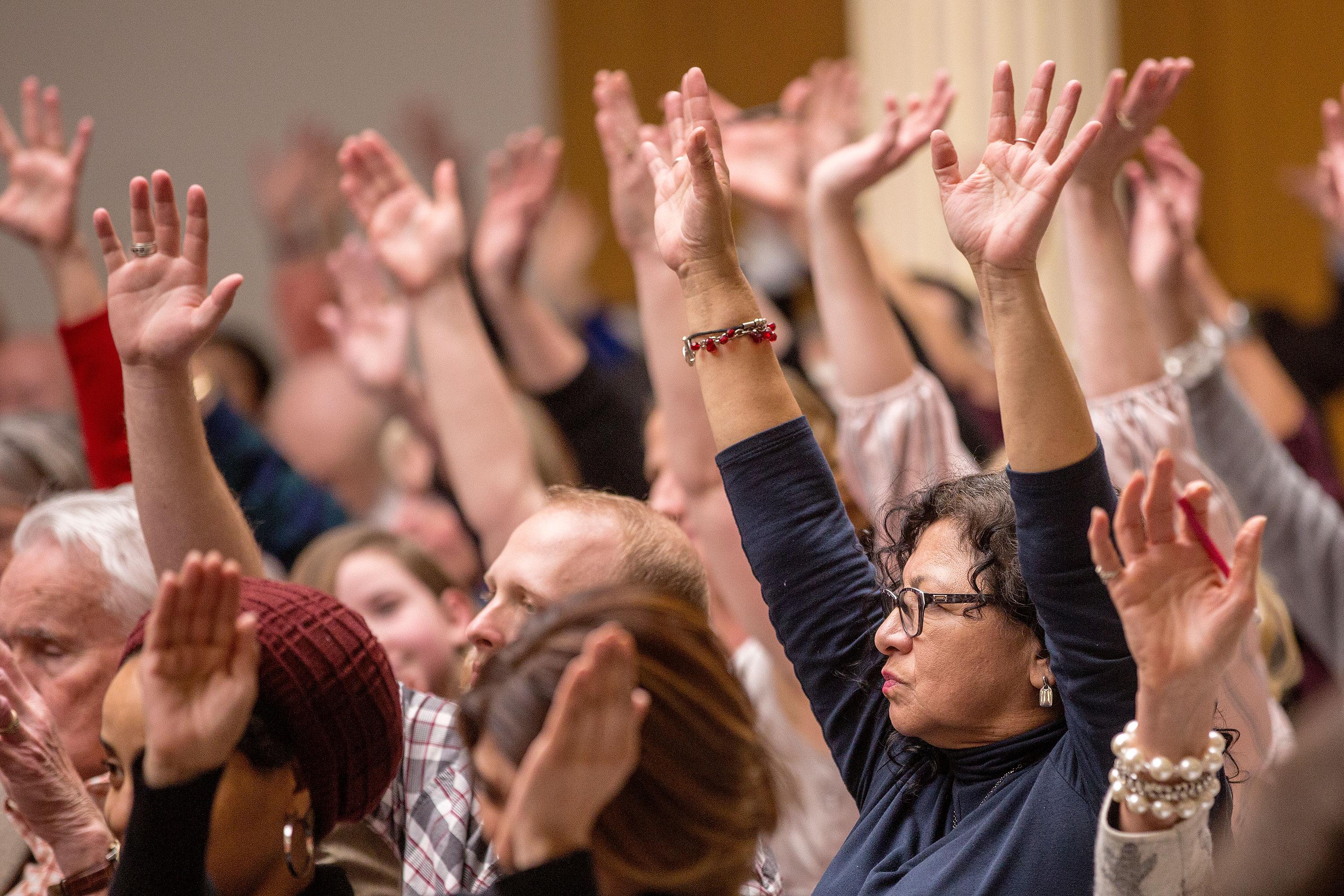

The biggest hearing of the 2019 legislative session to date — on the future of sex education in Colorado — brought hundreds of people to the state capitol Wednesday.
The emotional, and at times graphic, hearing wrapped up just before midnight, when the Democratic measure cleared the House Health and Insurance Committee on a party-line vote.
House Bill 19-1032 updates a comprehensive sex education law passed in 2013 and sets aside money to help smaller school districts fund the program.
Under the new policy, abstinence-only curriculum is prohibited. The legislation adds Colorado to the small number of states in the country that explicitly require schools to teach students about consent.
Democratic Rep. Susan Lontine of Denver, one of the bill’s main sponsors, told CPR News there’s a connection to be drawn to last session’s #MeToo moment. “You might remember here in this very building we had an issue of workplace harassment, that centered around, I believe, consent,” she said.
Lontine filed a sexual harassment complaint last session against another lawmaker that was found to be credible. She opined that there’s “a huge problem with understanding what consent is and what healthy relationships are.”

The hearing was held in the capitol’s largest committee room and even then the crowd filled four overflow rooms. After a warning by the committee chair not to clap, people repeatedly waved their hands in the air to show support for certain witnesses.
Opponents outnumbered supporters in the crowd. For many a big sticking point was a requirement that students learn about same-sex relationships.
The bill defines a comprehensive sex ed curriculum as one that “also teaches youth about the different relationship models they and their peers may engage in, including lesbian, gay, bisexual, and transgender peers, and how to be a safe and healthy partner in relationship.”
Another major oppositional concern is that the curriculum bars gender stereotypes.
“I think most Christian believers or Bible believers would believe in a gender norm or stereotype,” testified Jonathan Scott, a pastor and father of four children. For him, the wording of the bill is “very confusing.”

Many who spoke against the bill went well beyond the language of the legislation to discuss the appropriateness of gay and bisexual relationships, religion, and family values. People described the sorts of sexual acts they didn’t want their children to learn about. One woman brought out a condom and compared the curriculum to how pedophiles groom their victims. Others thought the bill would normalize deviant sexual acts and equated supporting it to child abuse and promoting a homosexual agenda in Colorado.
“It’s a desperate life for this gay lifestyle and the lifespan is short,” Catherine Goodwin told committee members.
“Why are you experimenting with these children, some younger than teenagers, and why are you messing with their minds with information that is basically going to be abnormal?”
Other students and parents argued science-based sex education is critical. Laura Reeves is a parent from Douglas County whose daughter attends a junior high with an abstinence-only curriculum.
“In class a teacher holds up a piece of used tape to represent such a girl who is described as dirty and tainted,” she said. “Does this result in increased rates of abstinence? No. The outcome of this message is to shame all females. This includes anyone who may be a victim of sexual abuse or sexual assault. Shaming people like this does not align with my Christian values.”

The state allows parents to opt their children out of sex education, yet some worry that would lead to bullying. The legislation would also allow school districts to opt out of teaching sex education altogether.
Notably absent were representatives from school districts, who have been largely silent on the measure. The Colorado Department of Education doesn’t track how many school districts already teach comprehensive sex education, or the specific curriculum they follow.
For several Democrats on the committee, the testimony felt personal. In his closing statement, Democratic Rep. Kyle Mullica, whose mother is a lesbian, said he thought much of the testimony was homophobic.
Fellow Democrat Brianna Titone, Colorado’s first transgender state lawmaker, found much of the testimony “personally offensive,” but still a good learning experience. She added she doesn’t fault people for not getting “people like me.”
The measure is expected to clear the Democratic-controlled legislature. While the committee vote fell on party lines, 7-4, at least one Republican is on board in the Senate; Don Coram of Montrose is the bill’s main sponsor in that chamber.
Editor's Note: This story has been updated to clarify that Rep. Susan Lontine's remarks originated in a separate interview.








